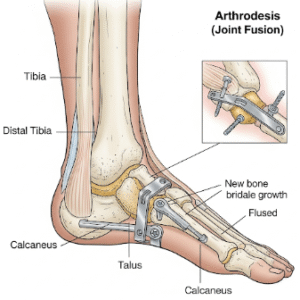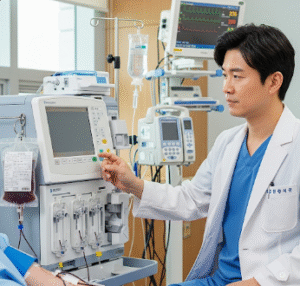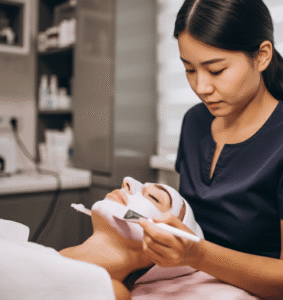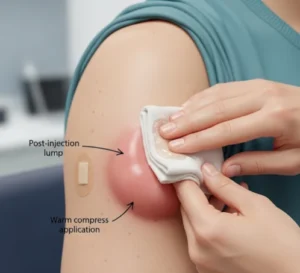What is Genetic and Genomic Testing?
Genetic and genomic testing is a medical process used to examine DNA, genes, or chromosomes to detect inherited or acquired genetic conditions, predict disease risk, or guide treatment decisions.
💡 Key Points About Genetic and Genomic Testing:
✔️ Genetic testing – Examines specific genes or mutations linked to particular inherited disorders
✔️ Genomic testing – Broad analysis of the entire genome to assess multiple genes, structural variations, and complex conditions
✔️ Purpose – Identifies disease-causing mutations, carrier status, predisposition to disease, or response to medication
✔️ Personalized medicine – Helps tailor treatments based on individual genetic makeup
Types of Tests:
➡️ Single-gene testing – Focused on one gene mutation (e.g., BRCA1/2 for breast cancer)
➡️ Panel testing – Multiple genes analyzed for a specific disease category
➡️ Whole exome sequencing (WES) – Examines all protein-coding regions in the genome
➡️ Whole genome sequencing (WGS) – Comprehensive analysis of all DNA
➡️ Prenatal and neonatal genetic testing – Detects congenital or inherited disorders early
In Korea, genetic and genomic testing is available in major hospitals, specialized genetic clinics, and research centers, often integrated with genetic counseling for optimal interpretation.
Why It’s Done
Genetic and genomic testing is performed for diagnosis, risk assessment, and treatment guidance:
✔️ Diagnosis of inherited disorders – Detects conditions like cystic fibrosis, thalassemia, or muscular dystrophy
✔️ Cancer risk assessment – Identifies gene mutations (BRCA1, BRCA2, TP53) that increase cancer susceptibility
✔️ Carrier screening – Determines if an individual carries a genetic variant that could affect offspring
✔️ Pharmacogenomics – Guides personalized drug choice and dosage based on genetics
✔️ Prenatal or neonatal screening – Early detection of congenital disorders
✔️ Unexplained medical conditions – Helps identify rare or complex genetic diseases
Clinical Benefits:
➡️ Early detection → Preventive measures and early interventions
➡️ Targeted therapy → Personalized treatments improve effectiveness
➡️ Family planning guidance → Carrier screening informs reproductive decisions
➡️ Research contribution → Participation in genomic studies helps advance medicine
In Korea, genetic testing is commonly recommended for high-risk families, prenatal care, oncology patients, and rare disease diagnosis, reflecting a nationwide emphasis on precision medicine.
Alternatives
Depending on the condition and availability, alternatives may include:
⭐ Clinical assessment – Physical examination and family history evaluation
⭐ Standard laboratory tests – Blood tests or biochemical markers
⭐ Imaging studies – MRI, CT, or ultrasound for structural abnormalities
⭐ Non-genetic predictive tools – Risk calculators based on lifestyle and clinical factors
👉 Key Point: While alternatives may provide information, only genetic and genomic testing can confirm specific hereditary mutations and guide personalized treatment.
Preparation
Proper preparation ensures accuracy and safety during genetic and genomic testing:
🔹 Medical and family history review – Document symptoms, ancestry, and family conditions
🔹 Informed consent – Understanding implications, limitations, and potential outcomes
🔹 Sample collection – Blood, saliva, cheek swab, or tissue depending on the test
🔹 Counseling – Pre-test genetic counseling for risk assessment and psychological support
🔹 Medication review – Usually not required but some medications may affect certain assays
⭐ Patient education – Understanding possible results, incidental findings, and confidentiality
⭐ Emotional preparation – Especially for predictive or prenatal testing
How It’s Done
Genetic and genomic testing involves collection, analysis, and interpretation of DNA:
- Sample Collection
✔️ Blood sample (most common)
✔️ Saliva or buccal swab for less invasive testing
✔️ Tissue sample in some cases (tumor analysis) - Laboratory Analysis
🔹 DNA extraction and quality check
🔹 Gene sequencing, microarray analysis, or PCR-based methods
🔹 Bioinformatics analysis to detect mutations, deletions, or duplications - Result Interpretation
➡️ Genetic counselor or clinical geneticist explains findings
➡️ Risk assessment, recommendations, and next steps
➡️ Integration with clinical management and family planning guidance
Highlights:
✔️ Non-invasive for most tests
✔️ Turnaround time varies from a few days (targeted tests) to several weeks (whole genome sequencing)
✔️ Advanced laboratories in Korea offer high-accuracy and rapid processing
Recovery / Follow-up
Genetic testing is non-invasive and requires no physical recovery, but follow-up is essential:
✔️ Counseling session – Discuss results, implications, and recommended actions
✔️ Medical management – Preventive measures, lifestyle changes, or treatment plans based on results
✔️ Family testing – Consider testing at-risk relatives
✔️ Documentation – Results integrated into medical records for ongoing care
⭐ Psychological support may be needed for patients with high-risk or disease-associated findings
Complications / Risks
Genetic testing is low-risk physically, but has ethical, psychological, and social considerations:
⚠️ Emotional impact – Anxiety, stress, or guilt over findings
⚠️ Privacy concerns – Genetic information is sensitive and must be securely stored
⚠️ Insurance or employment implications – Possible discrimination in some contexts (Korean laws protect patients but awareness is key)
⚠️ Incidental findings – Unexpected genetic results unrelated to the initial reason for testing
➡️ In Korea, genetic counseling and strict data protection policies minimize these risks and ensure ethical use of information.
Treatment Options / Genetic and Genomic Testing in Korea
Korea offers cutting-edge genetic and genomic testing services, including:
🏥 Diagnostic testing – For rare diseases, congenital conditions, and inherited disorders
🏥 Predictive and carrier testing – Family planning and cancer risk assessment
🏥 Pharmacogenomic testing – Tailoring medications for optimal response
🏥 Prenatal and neonatal testing – Non-invasive prenatal testing (NIPT) and newborn screening
🏥 Research-based genomic sequencing – Advanced whole exome/genome analysis in specialized centers
🏥 Genetic counseling – Pre- and post-test guidance from trained professionals
Why Korea is a Preferred Destination:
✔️ State-of-the-art laboratories – High-quality sequencing and analysis
✔️ Expert genetic counselors and clinicians – Guidance on interpretation and management
✔️ Integration with advanced medical care – Hospitals combine testing with treatment and monitoring
✔️ Fast turnaround and accuracy – Cutting-edge equipment ensures reliable results
✔️ Ethical and legal standards – Protect patient confidentiality and rights
Approximate Costs in Korea:
🔹 Single-gene testing → $150 – $500
🔹 Multi-gene panel testing → $500 – $1,500
🔹 Whole exome sequencing → $1,500 – $3,500
🔹 Whole genome sequencing → $3,000 – $6,000
🔹 Genetic counseling sessions → $50 – $150
Conclusion
Genetic and genomic testing is a powerful tool for personalized medicine, early detection, and disease prevention, providing insights into inherited and acquired genetic conditions.
It helps patients:
✔️ Identify disease-causing mutations
✔️ Assess risk for inherited disorders
✔️ Guide targeted therapies and preventive measures
✔️ Make informed reproductive and lifestyle decisions
In Korea, genetic and genomic testing offers:
✔️ Advanced laboratory technology – High-accuracy sequencing and analysis
✔️ Comprehensive genetic counseling – Personalized support and interpretation
✔️ Integration with healthcare services – Diagnosis, treatment, and monitoring combined
✔️ Ethical, safe, and patient-centered care – Protecting privacy and minimizing psychological impact
👉 Key Message: Genetic and genomic testing in Korea ensures accurate diagnosis, early detection, and personalized medical care, supporting better health outcomes and informed patient choices.













